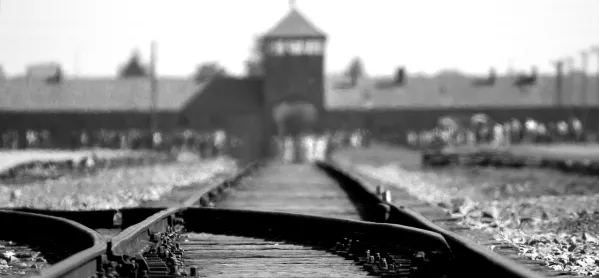“Shocking, appalling, shameful and embarrassing.”
CNN chief international anchor Christiane Amanpour did not mince her words when responding on Twitter to the news that one in 20 adult Britons do not believe the Holocaust took place, and she was far from alone.
Comedian David Baddiel brought some helpful perspective – “5 per cent, whilst 5 per cent too much isn't bad, almost heartening, considering the high levels of idiot conspiracy theory… one encounters on here”, but many others quickly began to ask the question: “What are we teaching in our schools?”
This is far from the first time that this question has been asked. And it reveals an ignorance of the reality that teachers face.
I do not know how many people are aware that roughly two-thirds of British schoolchildren do not study history to GCSE level. So for most, their typical engagement with the subject might be around 90 minutes a week, for 40 weeks a year, for three years.
180 hours. That’s the time it would take to watch just a year’s worth of Coronation Street, in which the teacher must somehow tell the tale of the 108 billion people that have ever lived.
We could teach just the Holocaust for those 180 hours and not exhaust the subject. But in reality, we are unlikely to have even 180 minutes. And the challenge to reach everyone is great.
I have seen for myself how ready some pupils are to buy into conspiracy theories not dissimilar to those pushed by Holocaust deniers. Internet algorithms have been found to promote ever more radical and outlandish "conspiracy" content: 9/11, the Illuminati – even the Flat Earth Society is making a comeback in the online age, boasting “members from all around the globe”.
And even on their own, humans are capable of developing irrational ideas that they defend doggedly. On the very day of the 7/7 bombings, one pupil told me gravely that he knew full well who was responsible. “It’s the French, sir. It’s because we got the Olympics.” When I tried to gently set him straight, he shook his head sadly. “You’re naïve, sir. Naïve.”
Teach the Holocaust across subjects
“Reasoning will never make a man correct an ill opinion, which by reasoning he never acquired,” said Jonathan Swift. We may never eradicate Holocaust denial. But what we must do is our best to make sure that as many people leave school equipped with not just the knowledge and understanding they need, but also a fuller sense of why the Holocaust occupies the place in history that it does.
By all means, teach the cold facts. But we have a wealth of remarkable art in response to the Holocaust that can help children not only think but also feel. Pupils will be captivated by The Pianist and Art Spiegelman’s Maus in a manner hard to replicate.
For this reason, collaboration between departments can be crucial. Religion and philosophy or English are obvious allies. But given the part played by new media in spreading Holocaust denial, media studies can take an important role in educating children in how to evaluate what they see on their screens.
The remarkable work of the Holocaust Educational Trust has been ongoing for over 30 years, helping British schoolchildren to meet and hear from survivors, and to travel to Auschwitz and other key locations to see for themselves what remains of the Final Solution. If we can marry what pupils learn in the classroom to these experiences, the result should be all the more robust.
If teachers feel unsure on the subject, I strongly recommend books by two academics that know better than most the importance of giving no quarter to Holocaust deniers. Deborah Lipstadt's Denying the Holocaust and Richard J Evans' Telling Lies About Hitler not only illuminate one of the darkest periods of human history, but also give fantastic insight into how we know what we know about the past.
Over the next few decades, the number of survivors will inevitably dwindle until there is no one left to give a first-person account. The fight will then likely intensify, more than ever before, against those who seek to supplant truth with their poisonous fictions. Schools should not be left to man the barricades alone. But we should be prepared to play our full part in this battle.
Andrew Foster is head of education at Tougher Minds





